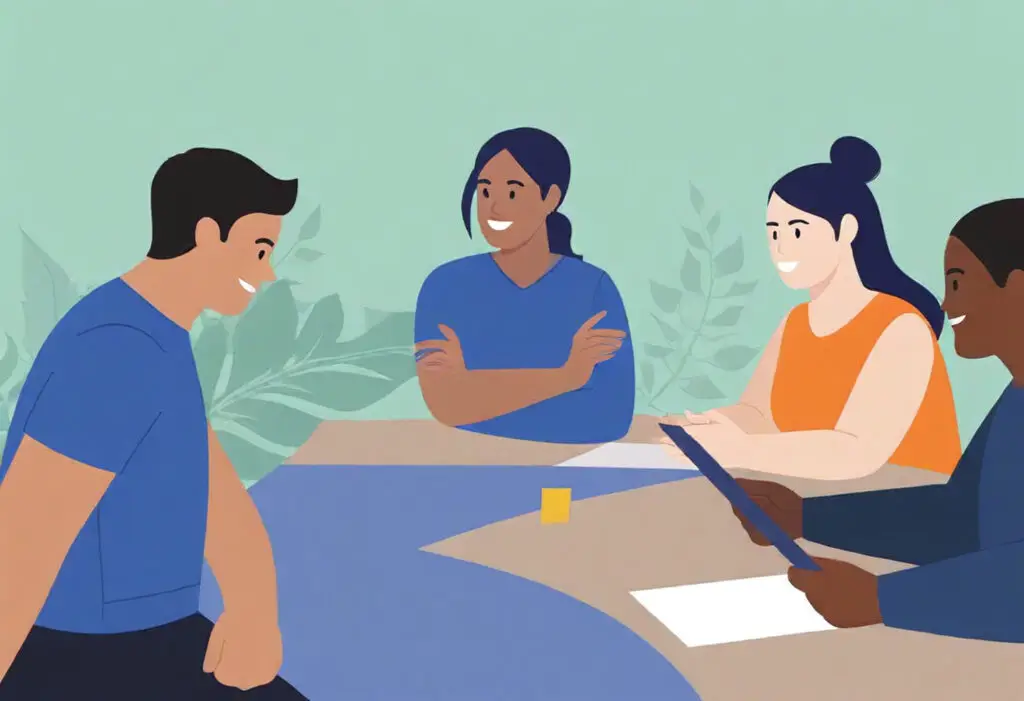 Team-building events can be an effective strategy if hosted correctly and everyone’s a willing participant. However, they can go wrong. Perhaps you’ve participated in a meet and greet followed by a barbecue and got nothing out of it, or maybe you’ve done an all-in challenge with group tasks to “beat” everybody into a unit. Nobody went home happy.
Team-building events can be an effective strategy if hosted correctly and everyone’s a willing participant. However, they can go wrong. Perhaps you’ve participated in a meet and greet followed by a barbecue and got nothing out of it, or maybe you’ve done an all-in challenge with group tasks to “beat” everybody into a unit. Nobody went home happy.
If poorly managed, collaborative events have five minutes of success, followed by resentment and criticism. Play the long game with successful group-building strategies.
What Is Team Building About?
In the corporate world, movement happens when a company notices departments fail to meet their targets. The goal is to motivate a group to work better, collectively and productively.
The goals of the shared group experience are to foster trust and strengthen interpersonal relationships. A successful event focuses on the whole group as well as individual members, who need to become self-motivated to contribute meaningful energy to the company core.
Goals for team events include:
- Improving communication
- Developing conflict resolution
- Building empathy
- Creating networking skills
- Embracing a culture of positivity
- Identifying leadership
Good Team Building
What’s the difference between good and bad team-building activities? Good group growth events are managed efficiently by knowledgeable leaders who encourage connection and cohesion. Individual team members learn to see the people they work with in a new light, which fosters empathy and connection.
The No. 1 goal of joint activities is to improve communication and collaboration, which enhances performance and dedication. Suitable teamwork activities help people connect and stimulate discussion. Activities focus on personal success in the unit and shared reward, which build motivation.
Focusing exclusively on the group and not the members can be destructive if a herd mentality sets in, which forces conformity and encourages polarity — an “us versus them” attitude. This affects group innovation and efficiency.
Laughter and fun are part of the learning process, and it should relax all participants. People learn nothing if they feel foolish. A study a few years ago found that 72% of millennials prefer experiences over material things, so your sessions should include valuable opportunities.
Successful team-building activities:
- Include the entire section and management so group members feel seen, heard, and understood regarding their daily concerns.
- Offer chances to roleplay, discover, and share.
- Provide opportunities to learn new skills and discover personal strengths.
- Share novel activities outside what people are comfortable with but not to the point they feel intimidated and bullied.
- Provide feedback and reinforce learning activities for personal and collective growth.
Bad Team Building
Most corporate development activities take the form of an off-site retreat. The idea is to challenge employees to step outside their comfort zones and cultivate trust and better work relationships. However, trust is hard to find when you lack it in yourself.
If you feel demotivated about your work, you may be more likely to demotivate others than become jointly inspired by a rope obstacle course or walking over a bed of hot coals. These elaborate activities are gimmicks that make dramatic examples, but the temporary lessons don’t translate back to the workplace.
Bad team events are:
- Poorly planned, with obvious goals to boost sales or group success without individual satisfaction.
- Boring — only sharing theoretical knowledge that management could have covered in an email or meme.
- Forced on people, with no consideration of personal preferences or sensitivities.
- Inconsiderate and make fun of staff members, which breeds resentment.
- Cookie-cutter events that don’t consider people at all — the IT section may need a different approach than the sanitation unit.
- Disproportionately priced, leaving staff disgruntled that the company will spend thousands on a single event but doesn’t increase their salaries.
And the Winner Is?
Team-building events can be a successful investment and help improve the group’s collaboration and efficiency. Good sessions are opportunities — what the staff brings to the table equates to what they take away.
An elaborate team event won’t fix a broken unit, foster new relationships, or increase efficiency. The demotivated and failing group includes individuals who are themselves demotivated.
When you apply these events appropriately to a group willing to work, learn, and develop together, you use their energy to create a motivated unit. Positive sessions stimulate a change from extrinsic to intrinsic motivations as participants grow and become more self-aware and motivated by belonging and personal satisfaction over money and promotions. Each person should take pride in being part of something bigger.
Getting on the Team
For collective success, focus on ways to include the individual worker in a growth opportunity. Development can look like tickets to the local baseball game followed by a lively debate about strategy after. It can also be a meditation retreat that discusses stress management in new and meaningful ways, followed by a massage session.
Invest in and listen to your team, and the results will speak for themselves.


